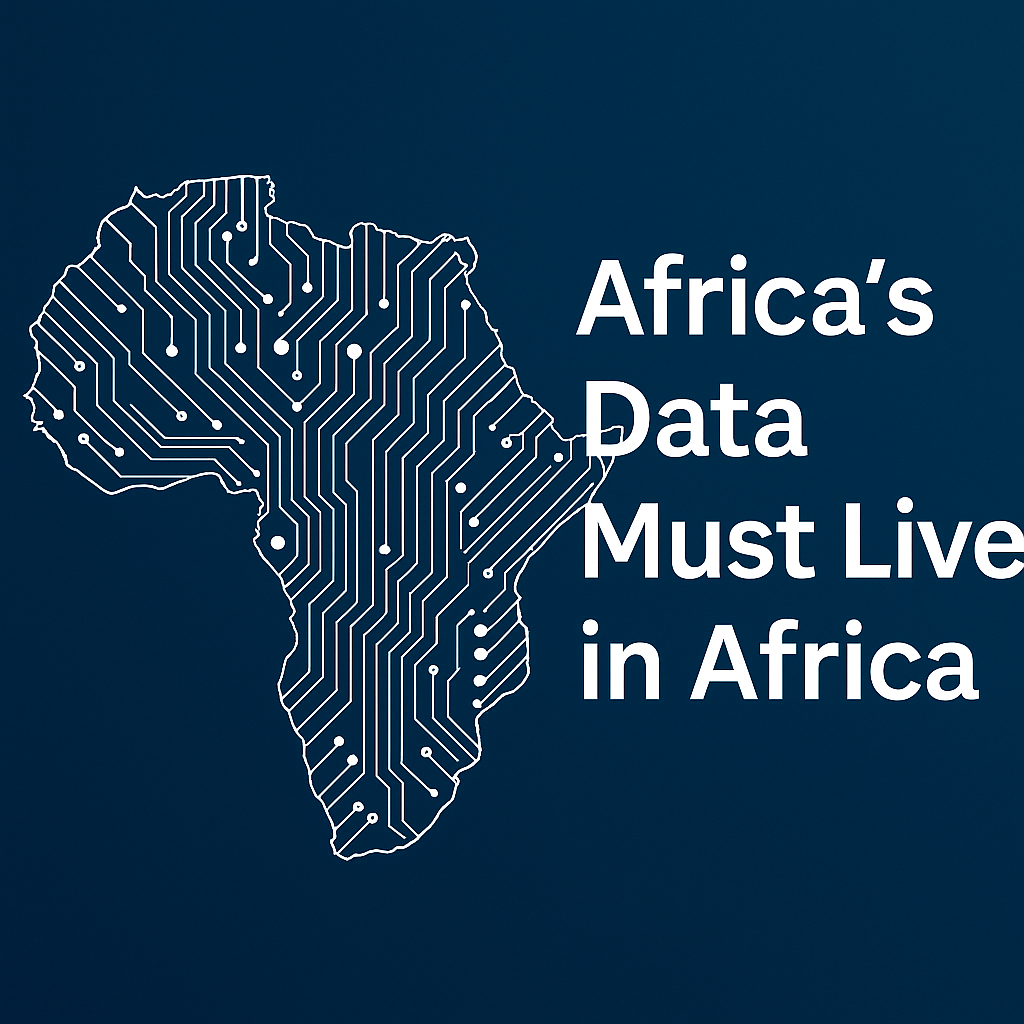In the 21st century, data is the new gold. It drives economies, fuels innovation, and underpins every aspect of modern governance, business, and social life. Yet, while Africa is fast becoming one of the most digitally active continents, the infrastructure that powers this transformation — data storage and processing — largely resides beyond its shores.
Today, a vast majority of African digital platforms, government systems, and business applications are hosted in data centres located in Europe, North America, and Asia. Every second, the continent’s data flows across oceans before returning to users — a process that is costly, inefficient, and increasingly unsustainable for a region on the rise.
The question is no longer whether Africa needs its own data centres, but how quickly it can build and sustain them.
Africa’s Digital Growth — A Powerful Engine with Distant Roots
Africa’s digital revolution is undeniable. From mobile money in Kenya to FinTech innovation in Nigeria and smart governance platforms in Ghana and Rwanda, the continent is rewriting its narrative.
The International Finance Corporation (IFC) projects that Africa’s digital economy could reach US$180 billion by 2025, accounting for 5% of the continent’s GDP.
But there’s a catch: much of this growth is being processed and stored overseas.
Emails, banking transactions, health records, and even online education systems often depend on foreign cloud servers. The result is that African innovation runs on imported digital infrastructure.
This dependency brings several challenges:
- High latency: Data traveling thousands of miles slows down user experiences and real-time services.
- High costs: Offshore hosting drains scarce foreign exchange reserves through recurring service fees.
- Vulnerability: Data stored abroad is subject to foreign laws, outages, and cyber risks.
- Lost opportunity: Africa misses out on thousands of high-value jobs and billions in potential investments.
Africa is essentially exporting its most valuable digital resource — data — while importing the services to process it.
Why Ghana Can Lead as West Africa’s Data Hub
Among Africa’s emerging digital economies, Ghana stands out as a natural leader in building the next generation of sustainable data infrastructure.
It offers a unique blend of political stability, a skilled technology workforce, a strong regulatory environment, and access to major undersea fibre optic cables connecting the continent to global networks.
Ghana’s vision for digital transformation, anchored by initiatives such as the Ghana Digital Economy Policy, national broadband expansion, and the work of the Data Protection Commission, positions it as a credible West African data hub.
Moreover, Ghana’s energy mix, which increasingly integrates solar and renewable sources, gives it an advantage in building green data centres — a critical requirement for future sustainability.
By investing in its own hosting and processing capabilities, Ghana could not only serve its domestic needs but also offer regional data services to neighboring countries such as Côte d’Ivoire, Togo, Burkina Faso, and Nigeria’s northern corridor — where infrastructure gaps remain wide.
A Ghana-led regional data ecosystem would reduce reliance on Europe, shorten data routes, and boost the resilience of digital services across the entire West African subregion.
Why Africa Needs Its Own Data Centres
1. Data Sovereignty and Security
When African data resides outside the continent, it falls under foreign jurisdictions and privacy laws.
Governments, institutions, and even citizens have limited control over how that information is accessed, shared, or monitored.
Local data centres restore data sovereignty — ensuring that African information is protected under African laws, within African borders.
This is crucial for government agencies, banks, hospitals, and NGOs handling sensitive citizen or donor data.
2. Economic Independence and Cost Savings
Cloud hosting abroad is expensive — not only in fees but in bandwidth, latency, and foreign currency exposure.
By hosting locally, Africa can retain millions of dollars in data-related expenditure, while also stimulating the local ICT sector.
Domestic data infrastructure also attracts foreign investment, as international firms seek local compliance with privacy and data laws such as the Ghana Data Protection Act or the Nigeria Data Protection Regulation (NDPR).
3. Improved Connectivity and Service Reliability
A locally hosted website or cloud application loads up to 10 times faster than one hosted abroad.
This speed advantage directly impacts businesses, government services, education portals, and e-commerce platforms.
In sectors like healthcare, finance, and logistics, latency can determine efficiency, safety, and customer trust.
A network of interconnected African data centres would allow for faster regional data exchange and backup redundancy — making services more reliable even during global outages.
4. Job Creation and Knowledge Transfer
Each data centre creates a ripple of economic opportunity.
From construction, energy management, and cooling systems to software engineering, cybersecurity, and AI analytics, these facilities train and employ thousands of young Africans in high-demand digital skills.
Universities and technical institutes could partner with such facilities to create hands-on learning programmes, ensuring that Africa’s youth are not just consumers of technology but architects of it.
5. Environmental and Energy Innovation
Africa’s abundant sunlight and growing renewable sector offer an opportunity to power green, sustainable data centres.
Rather than replicating the carbon-heavy infrastructure of older economies, Africa can build energy-efficient, solar-augmented data hubs that meet global environmental standards.
This aligns with both Africa’s Agenda 2063 and the UN Sustainable Development Goals (SDGs) — showing that technology and sustainability can advance hand in hand.
The Role of Policy Makers and Investors
Governments, financial institutions, and regional blocs such as ECOWAS and the African Union must recognise data infrastructure as strategic national capital — just like energy, roads, or ports.
Key actions that can accelerate this include:
- Providing incentives such as tax reliefs, import duty exemptions, and public–private partnerships (PPPs) for data centre developers;
- Enforcing data localisation policies that require critical national or sectoral data to be stored within African jurisdictions;
- Investing in power reliability through renewable grids that stabilise uptime;
- Harmonising data laws across regions to enable secure cross-border data exchange;
- And encouraging academic collaboration, so that research institutions and universities contribute to the design, operation, and governance of local cloud ecosystems.
For investors, the opportunity is equally significant.
Africa’s demand for data storage is projected to quadruple within the next five years, driven by fintech growth, e-commerce, digital governance, and AI adoption.
Backing African data infrastructure today is not only profitable — it’s strategically essential.
The Risks of Waiting
If Africa delays building its own data centres, it risks deepening its digital dependency — becoming a permanent tenant in the world’s data economy.
Without domestic control over its information backbone, the continent could face:
- Rising costs dictated by offshore providers;
- Legal conflicts in international jurisdictions;
- Limited capacity to enforce privacy and cybersecurity;
- And slower digital adoption due to connectivity bottlenecks.
In essence, Africa would continue exporting its digital potential while importing the value-added services that should have been created at home.
A Vision of an African-Hosted Future
Africa’s digital destiny must be built, managed, and secured on African soil.
From Accra to Nairobi, Lagos to Kigali, the continent is brimming with talent, energy, and innovation. What it now needs is the infrastructure backbone to match that ambition.
Ghana, with its progressive policies and growing technological base, can stand at the forefront of this transformation — leading West Africa into a new era of data independence.
When Africa owns its data centres, it owns its narrative.
It controls its innovation cycles, protects its citizens’ privacy, and captures the full economic value of its creativity and intelligence.
The future will not belong to those who consume data but to those who host, process, and protect it.
Africa’s time is now —
and the future is African-hosted.




Leave a Reply